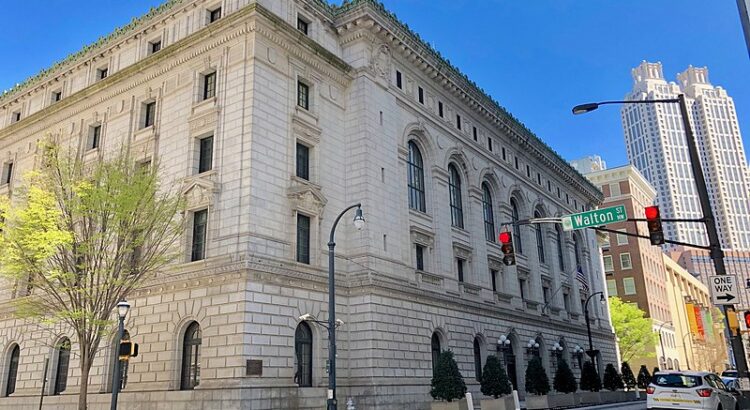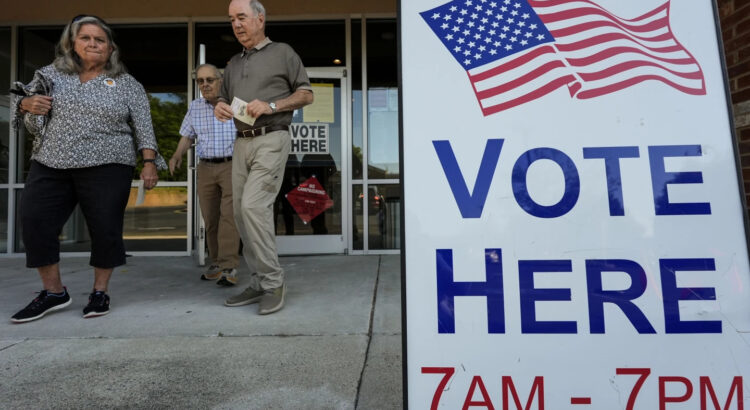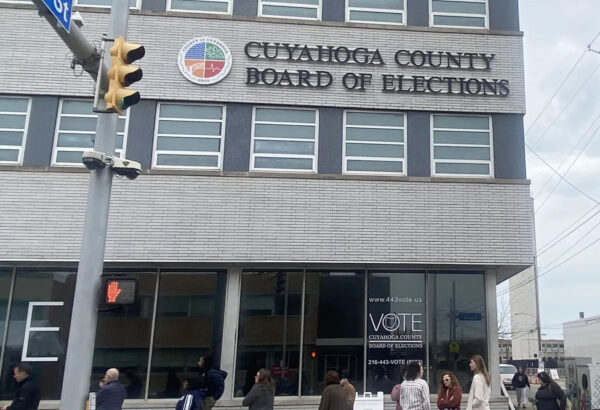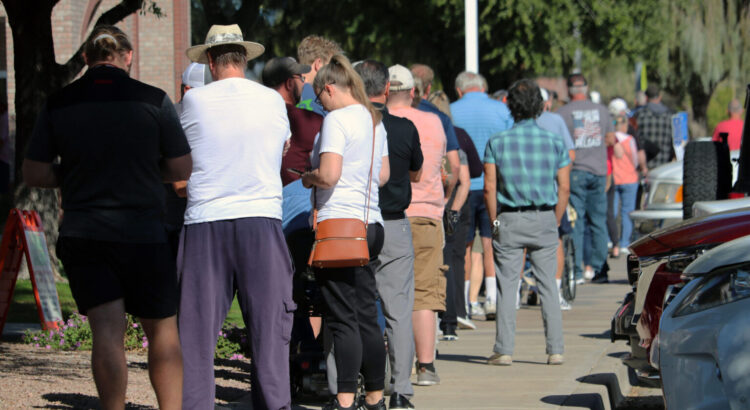BY JEFF AMY AND TRENTON DANIEL
Updated 11:02 PM CDT, June 28, 2024
WOODSTOCK, Ga. (AP) — Conservative activists in Georgia and some other states are quietly pushing a way to remove names from the voting rolls without filing a formal legal challenge.
They’re asking election administrators to use their data to purge voter registrations, which means names could be removed in a less public process than a formal voter challenge. The strategy could mean electors won’t be summoned in advance to defend their voting rights and the identities of those seeking to purge voters might not be routinely public.
Georgia Secretary of State Brad Raffensperger’s office insists any living voter stricken from the rolls must be notified. But because Georgia has 159 counties and no formal statewide rules governing these less formal inquiries, it’s unclear how every county will react. People removed in error could vote a provisional ballot, but local officials might count those votes only in exceptional cases.
The strategy is expanding even as a new Georgia law takes effect Monday that could lead to counties removing a larger share of voters using formal voter challenges.
That law already has been met with alarm by Democrats and voting rights advocates. They view the hundreds of thousands of voter challenges filed since 2020 as part of Georgia’s long history of blocking voting dating back to slavery. Now, as details of below-radar efforts surface, those advocates fear a double-barreled attack on voting.
“There’s built-in transparency into the challenge process, and some level of voter protection in that notice requirements and hearings are required,” said state Rep. Saira Draper, an Atlanta Democrat and Joe Biden’s 2020 state director of voter protection. “You can’t sidestep that by just unofficially challenging people and saying it’s not a challenge because we’re not calling it a challenge.”
The less-formal approach has worked at least once. In suburban Atlanta’s Cobb County, the county removed some voters after a man sent inquiries listing 245 potentially dead people.
“All we’re doing is a free service. Hey, this group of 500 people, or this group of 800 people said they moved. Maybe you should look into it,” Jason Frazier, a Republican who has formally challenged nearly 10,000 voters in Atlanta’s heavily Democratic Fulton County, said during a presentation Friday.
The effort is one prong of a wide-ranging national effort coordinated by Donald Trump allies to take names from rolls.
An Associated Press survey of Georgia’s 40 largest counties finds more than 18,000 voters have been challenged in 2023 and 2024, although counties rejected most challenges. Election officials predict challenges will surge under the new law.
Most controversially, that law says officials can use as evidence the U.S. Postal Service’s National Change of Address list showing people have moved, although not as the sole reason for removing voters. Opponents slam that list as unreliable.
It’s unclear how much change the law will bring because the state hasn’t issued guidelines to counties on handling challenges.
County officials routinely remove voters who are dead, convicted of felonies, mentally incompetent or no longer living in Georgia, using lists provided by the secretary of state’s office.
For people who have moved, federal law says Georgia can only cancel an inactive registration if a voter doesn’t respond to a mailing and then doesn’t vote in two following federal general elections. That process takes years.
Activists fueled by Trump’s lies that the 2020 election was stolen say state cleanup efforts are woefully inadequate and inaccuracies invite fraud. Douglas Frank, a former teacher traveling the country peddling election conspiracy theories, urged Georgians to use software called EagleAI to file challenges this spring.
“You have the constitutional right to challenge any other voter in your county,” Frank said at Cherokee County Republican headquarters in Woodstock. “In fact, it’s not merely your right. It’s your duty to clean the voter rolls.”
Texas-based True the Vote challenged 364,000 Georgia voters prior to two U.S. Senate runoffs in 2021. Individuals and groups have since challenged many more. Election officials say many challenges are powered by EagleAI. The tool was created by Dr. John “Rick” Richards Jr., a retired physician and entrepreneur who lives in suburban Augusta’s Columbia County.
Richards said in a Wednesday interview that people using his software are citizen volunteers, likening the work of finding ineligible voters to picking up roadside trash.
“No one is going to be denied the right to vote,” Richards said. “That’s a bunch of hooey.”
In online meetings and in-person appearances over the past year, Richards has pushed EagleAI as a sophisticated platform to cleanse dirty voter lists. The Associated Press found the platform is funded and used by supporters of Trump, some of whom worked to overturn the 2020 vote, and entwined with the Republican’s campaign.
An EagleAI document last year touted the system’s “use of AI” and “multitiered algorithms” to cleanse dirty voter lists, but Richards now says there is no artificial intelligence at work. The software instead draws in part from a database of “suspicious” voters hand-built by conservative activists, the AP found.
Over past months, an AP reporter joined online meetings publicized among activists before eventually being asked to leave. The AP also obtained additional meeting videos to glean a behind-the-scenes look at how the software is used in states including Arizona, Florida, Illinois, Nevada and Ohio.
“The left will hate this — hate this. But we love it,” Cleta Mitchell, a frequent participant, said during one presentation. Mitchell is a GOP election attorney who took part in the call when Trump implored Raffensperger to “find” more votes in the 2020 election. While Trump was indicted in Georgia for the call, Mitchell was not. Mitchell now is a leader in multiple organizations pushing to purge voting rolls.
Richards called Mitchell’s affiliations “irrelevant.”
“This has nothing to do whatsoever with the 2020 election — has nothing to do with the current politicians,” he said. “It has to do with what’s right is right.”
Richards’ hometown election board in Columbia County agreed in December to buy EagleAI software, the only Georgia government known to have done so.
The county agreed to pay $2,000, saying EagleAI would help maintain its voter list but wouldn’t be “the sole means to remove a voter.” But the deal stalled because Richards hasn’t returned a signed contract. He said elections officials have been too busy thus far to use the contract’s 90-day training period.
Eugene Williams, an active voter challenger and EagleAI user, emailed Cobb County Elections Director Tate Fall three lists totaling 245 potentially dead voters in December, January and March, citing obituaries.
“When we investigated, most of them had already been removed from the voter roll,” Fall told the AP. “But we have removed voters based on the data that he sent us.”
However, she added no voter would be removed without evidence and a vote by the county election board.
Others are pushing election officials to act using software other than EagleAI. True the Vote says its IV3 tool has highlighted 317,886 “invalid voter records.”
Mitchell has repeatedly urged allies to befriend officials, including on a 2023 EagleAI call with Richards.
She suggested asking officials: “‘How can we help you? What are the things that you wish you had that you don’t have?’ And they always say more money and more people. Well, you can say, ‘We have people, and we’re here to help you.’”
Source



